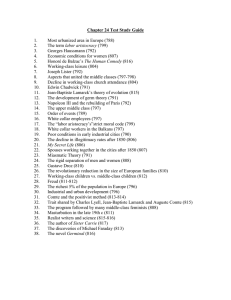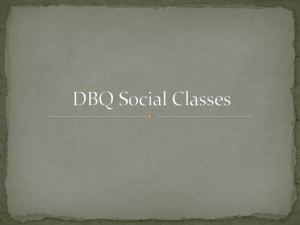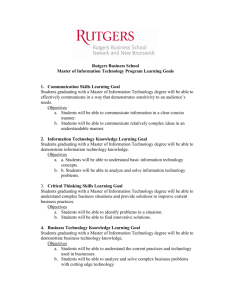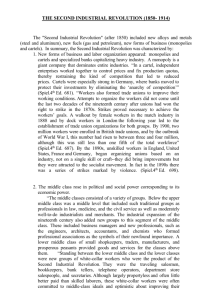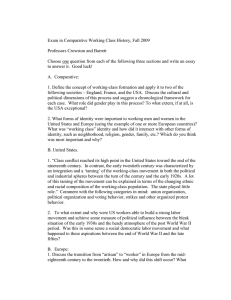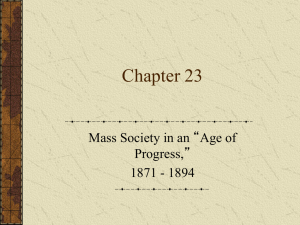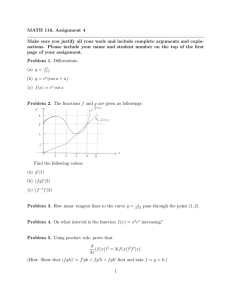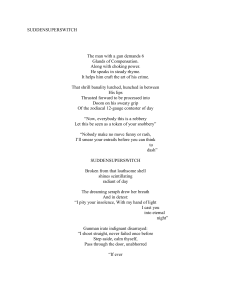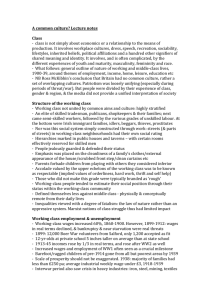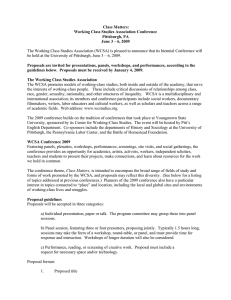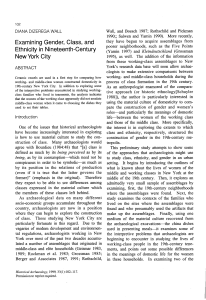Sue Hull
advertisement
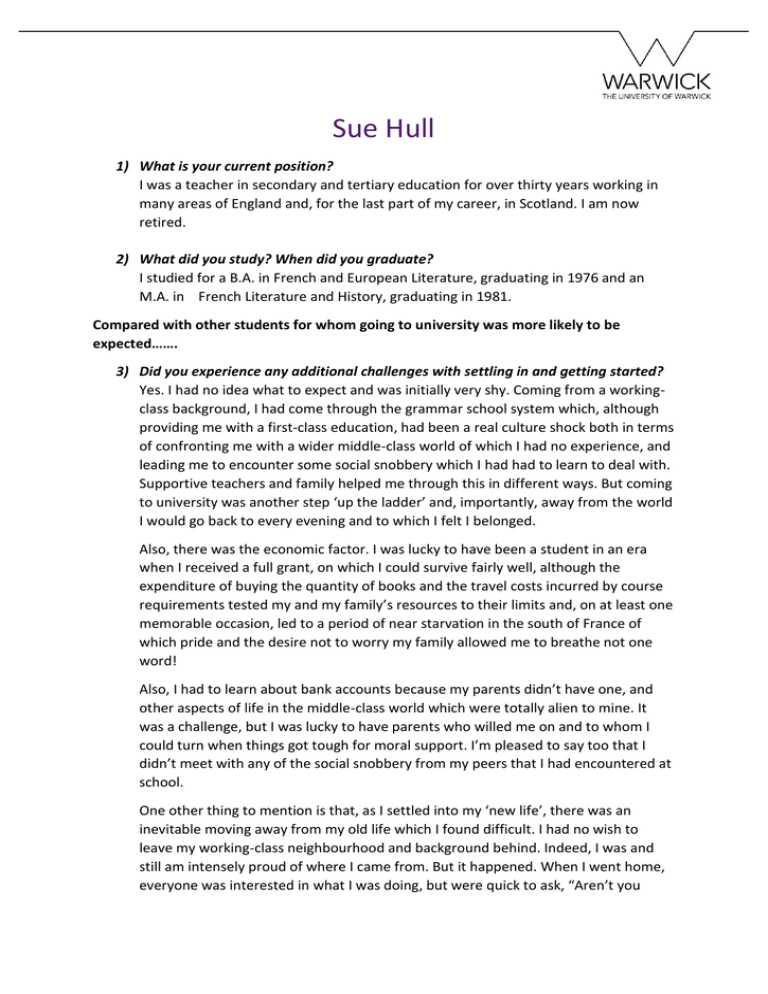
Sue Hull 1) What is your current position? I was a teacher in secondary and tertiary education for over thirty years working in many areas of England and, for the last part of my career, in Scotland. I am now retired. 2) What did you study? When did you graduate? I studied for a B.A. in French and European Literature, graduating in 1976 and an M.A. in French Literature and History, graduating in 1981. Compared with other students for whom going to university was more likely to be expected……. 3) Did you experience any additional challenges with settling in and getting started? Yes. I had no idea what to expect and was initially very shy. Coming from a workingclass background, I had come through the grammar school system which, although providing me with a first-class education, had been a real culture shock both in terms of confronting me with a wider middle-class world of which I had no experience, and leading me to encounter some social snobbery which I had had to learn to deal with. Supportive teachers and family helped me through this in different ways. But coming to university was another step ‘up the ladder’ and, importantly, away from the world I would go back to every evening and to which I felt I belonged. Also, there was the economic factor. I was lucky to have been a student in an era when I received a full grant, on which I could survive fairly well, although the expenditure of buying the quantity of books and the travel costs incurred by course requirements tested my and my family’s resources to their limits and, on at least one memorable occasion, led to a period of near starvation in the south of France of which pride and the desire not to worry my family allowed me to breathe not one word! Also, I had to learn about bank accounts because my parents didn’t have one, and other aspects of life in the middle-class world which were totally alien to mine. It was a challenge, but I was lucky to have parents who willed me on and to whom I could turn when things got tough for moral support. I’m pleased to say too that I didn’t meet with any of the social snobbery from my peers that I had encountered at school. One other thing to mention is that, as I settled into my ‘new life’, there was an inevitable moving away from my old life which I found difficult. I had no wish to leave my working-class neighbourhood and background behind. Indeed, I was and still am intensely proud of where I came from. But it happened. When I went home, everyone was interested in what I was doing, but were quick to ask, “Aren’t you married yet?” I felt like I was living in two worlds, but it was important to me to make it work. 4) Did you experience any additional challenges in thinking about, planning and organising for what happened when you finished? Yes. My frames of reference were pretty limited, I think. I had been inspired by my teachers and so decided I wanted to be a teacher. It was an aspirational job for a working-class girl of my generation and one highly respected by my family who put a high premium on education, not least as a path to social mobility. But I really had no idea of other possible career routes I could have taken which, with hindsight, would have suited me very well. It’s true that careers advice wasn’t that good for many, regardless of class background at that time, but in addition, I had few professional role models to inspire alternatives. In no way do I regret going into teaching, but I would have liked to have gone further down the academic route, perhaps teaching at a university. When I completed my dissertation for my M.A., I was told that it was ground-breaking and ought to be published but, received no advice on how to do this. I didn’t have a clue. When I finished my M.A. I did try to research other directions, but ultimately, the need to pay my way was the reason I went back into secondary teaching and didn’t continue on to do a Ph.D., which was what I would have certainly wanted. 5) How did you overcome them? I learned to be less shy, and how to enjoy my teaching career on my own terms. I chose not to proceed up a conventional career ladder but to explore and become good at the aspects of teaching and learning which interested me. I could say a lot more about this, space permitting. My family gave me a sense of self-worth, as did many other inspirational people I met along the way and read about. I joined groups of like-minded people working for causes I believed in. I learned to ask for help when I needed it and (slowly and sometimes painfully) developed strategies to cope with adversity when I encountered it. It made me stronger. 6) Was there anything the university could have introduced, or done better, which would have helped? Having some sort of mentor or advisor would have helped. My personal and academic tutors were great as far as my studies were concerned, but things which were obvious to them were not to me (see for example the lack of publishing advice). The kind of thing you are doing here with the case studies would have been a good step in the right direction! I expect careers advice has improved immeasurably and, of course, there is now the Internet and all kinds of excellent selfhelp books. But nothing replaces a one-to-one dialogue when self-doubt creeps in. I wish, at certain points in my life, someone with the relevant background and experience had encouraged me to ‘have a go’ and had been there to support me. My family did this to the best of their ability, but as I moved into areas of which they had no experience, there were times when I needed other support and practical advice.
